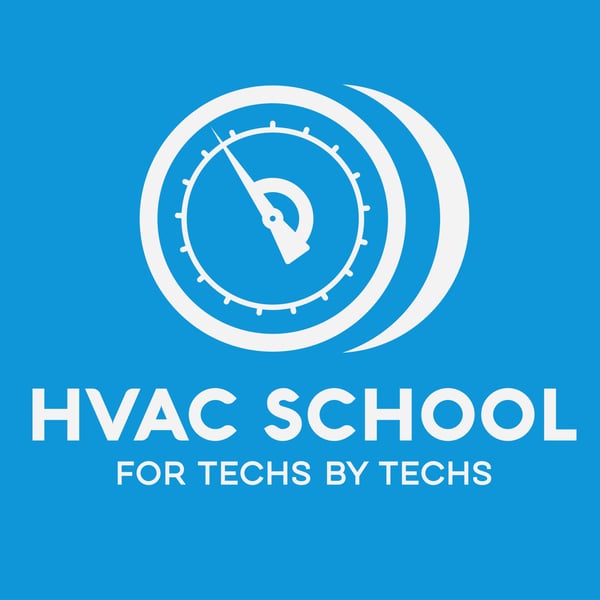EPA 608 Changes - What You Need to Know w/ Jeremy Arling
HVAC School - For Techs, By Techs
Bryan Orr
4.8 • 985 Ratings
🗓️ 17 May 2017
⏱️ 30 minutes
🧾️ Download transcript
Summary
In this episode of the podcast, Jeremy Arling from the EPA comes on and answers some common questions about the new rule changes that affect recovery, leak repair, recordkeeping, and evacuation on HVAC and refrigeration systems.
EPA 608 rules regulate the actions that technicians must take when it comes to refrigerants and the atmosphere, such as venting, recovery, and evacuation. It has always been illegal to vent HFCs, including R-410A. The changes to EPA 608 attempt to treat all refrigerants equally; R-410A would be on equal footing with HCFC R-22, for example. EPA 608 also clarifies the actions that require certification, including the purchase of ozone-depleting substances.
It is not illegal to recharge CFC or HCFC refrigerants. However, the availability of HCFC refrigerants will dwindle over time; systems will need to be charged with reclaimed refrigerants, not new R-22.
EPA 608 will also crack down on recordkeeping for recovery and reclamation. The technician does NOT have to keep the records; it is the responsibility of the company. However, the technician should keep track of the recoveries they do and provide those records to their companies.
When recharging leaking systems with over 50 lbs of refrigerant, technicians should know that HCFC-reliant appliances must be repaired, retrofitted, or retired within specific timeframes. There is no minimum time frame between the leak repair and verification testing; however, the EPA recommends testing within 10 days of the repair.
The EPA has approved the use and recovery of flammable refrigerants for a handful of industrial applications. Most of these also receive exemptions from the venting prohibition.
Resources
You can find the complete rule update HERE. You can also find Jeremy's presentation slides HERE and a quick sheet for technicians HERE.
If you want an app to help you keep a record of recovered refrigerant, I would suggest looking at the R-Log app HERE.
If you have an iPhone, subscribe to the podcast HERE, and if you have an Android phone, subscribe HERE.
Transcript
Click on a timestamp to play from that location
| 0:00.0 | This episode of the HVAC School Podcast is made possible by generous support from |
| 0:09.0 | Testo and Carrier. |
| 0:11.2 | Thank you to Testo and carrier for partnering with |
| 0:13.4 | HVAC technicians all across the country in helping provide this free training. And now the man whose body odor has been deemed an ozone depleting substance |
| 0:30.6 | according to the Montreal Protocol, Brian Orr. |
| 0:35.0 | Yes, thank you for that. |
| 0:36.5 | Pretend James Earl Jones. |
| 0:39.0 | My initials aren't B.O for nothing. |
| 0:41.0 | We'll just leave that there. |
| 0:42.0 | So today on the podcast, we have Jeremy Arling from the EPA and Jeremy was kind enough to come on. I really appreciate it. I also appreciate Anesta Jones from the EPA for helping make this possible. And we're going to talk about some of the rule changes |
| 0:54.6 | that are upcoming, most of them going into effect |
| 0:57.2 | on January 1st, 2018. |
| 0:59.4 | He answers a lot of really important questions, |
| 1:01.0 | things you're going to want to know. Just a quick reminder, we talk about |
| 1:04.4 | HFCs, which are modern refrigerants. Those contain hydrogen, fluorine, and carbon. Refrigerants like |
| 1:10.4 | R 410A, R438A, R47C, 134 A, those types of refrigerants. |
| 1:16.6 | There's a lot of changes coming to how HFCs have to be sold and handled, |
| 1:20.3 | a lot of the same stuff that you're already practicing, |
| 1:22.0 | but they just kind of put some more detail into it and then he also talks about h cFCs and cFCs so cFCs would have been like old |
| 1:28.8 | refrigerant r12 or r11 h cuffs would be refrigerants like R22. And so there's some changes in all the different |
| 1:35.8 | categories and so you're going to want to listen carefully to the differences. Another thing that |
| 1:39.7 | you're going to want to listen carefully to is that there are differences especially in leak repair |
... |
Please login to see the full transcript.
Disclaimer: The podcast and artwork embedded on this page are from Bryan Orr, and are the property of its owner and not affiliated with or endorsed by Tapesearch.
Generated transcripts are the property of Bryan Orr and are distributed freely under the Fair Use doctrine. Transcripts generated by Tapesearch are not guaranteed to be accurate.
Copyright © Tapesearch 2025.

